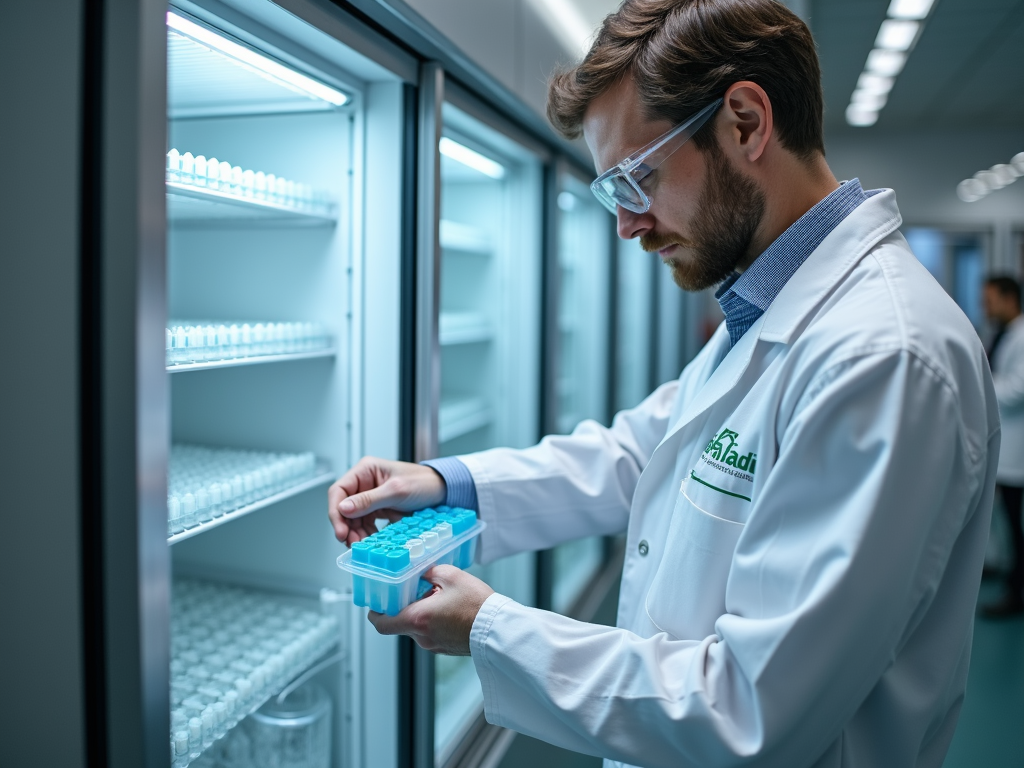How PCOS Affects Your Fertility
May 20, 2025, 7:46 a.m.
Overview
Polycystic Ovary Syndrome (PCOS) affects millions of women and can make getting pregnant harder. This article explains how PCOS affects your fertility, dives into a guide to understanding infertility causes, and covers fertility preservation techniques for women. With personal stories and expert tips, you’ll find clear, actionable advice to help you on your journey.
What Is PCOS and Why It Matters
PCOS is a hormonal condition that messes with your menstrual cycle, hormones, and ovaries. It’s one of the top reasons women struggle to conceive. About 1 in 10 women of childbearing age deal with it, according to the Office on Women’s Health. If you’re wondering how PCOS affects your fertility, it’s because it throws off ovulation—the process where your ovaries release an egg.

How PCOS Affects Your Fertility
PCOS hits fertility in a few big ways:
- Irregular Ovulation: Your periods might be all over the place—or not come at all. Without regular ovulation, there’s no egg for sperm to meet.
- Hormone Chaos: Too much insulin and androgens (male hormones) can stop eggs from maturing.
- Ovarian Cysts: Small cysts on your ovaries can mess with their job.
I remember my own diagnosis. My cycles were unpredictable, and I felt lost. Tracking ovulation felt like a guessing game. But learning how PCOS worked helped me take control.
Personal Insight
When I found out I had PCOS, I was scared it meant I’d never have kids. The doctor explained that high insulin levels were keeping my eggs from releasing. It wasn’t easy, but I started small—eating better, moving more. Over time, my cycles got a little more regular. It’s not a cure, but it gave me hope.

A Guide to Understanding Infertility Causes
Infertility isn’t just about PCOS. Here’s a breakdown of common causes:
| Cause | What It Means |
|---|---|
| Ovulatory Issues | PCOS or other conditions stop egg release. |
| Tubal Blockages | Fallopian tubes are blocked or damaged. |
| Uterine Problems | Fibroids or odd shapes affect implantation. |
| Male Factors | Low sperm count or poor sperm movement. |
For PCOS, ovulation is the main hurdle. But don’t assume—get tested to rule out other issues. A fertility specialist can map out what’s really going on.

Fertility Preservation Techniques for Women
If PCOS makes conceiving tough, fertility preservation can be a game-changer. Here are some options:
- Ovulation Induction: Drugs like Clomiphene or Letrozole kickstart ovulation. They worked for me after months of nothing.
- In Vitro Fertilization (IVF): Eggs get fertilized in a lab, then placed in your uterus. It’s more involved but can bypass PCOS issues.
- Egg Freezing: Freeze your eggs now, use them later. It’s like hitting pause on your fertility clock.
I went with egg freezing after years of uncertainty. Knowing my eggs were safe lifted a huge weight off my shoulders.
Why Preservation Matters
Research shows women with PCOS might face a shorter fertility window. A study from the National Institutes of Health found that egg quality can drop faster with PCOS. Fertility preservation research is still growing, but it’s clear these techniques give you options when nature doesn’t cooperate.

Tips to Boost Your Chances
You’re not powerless with PCOS. Here’s what you can do:
- Eat Smart: Cut sugar and processed carbs to lower insulin. It helped me feel better fast.
- Move Your Body: Exercise can balance hormones. Even walking 30 minutes a day counts.
- See a Pro: A reproductive endocrinologist can tailor a plan for you.
Small steps add up. I saw changes in months—not years—once I committed.

Emotional Side of PCOS and Fertility
Let’s be real—it’s not just physical. PCOS can hit your heart hard. I cried a lot, wondering why my body wouldn’t cooperate. Talking to others who get it helped. Support groups, online or in person, can make you feel less alone. Check out Resolve: The National Infertility Association for a place to start.

Expert Advice
Doctors say don’t wait too long to seek help. If you’re under 35 and trying for a year—or over 35 and trying for six months—see a specialist. The American Society for Reproductive Medicine has solid info on PCOS and fertility treatments. Knowledge is power here.
Summary
PCOS can complicate fertility, but it’s not the end of the road. From understanding how PCOS affects your fertility to exploring fertility preservation techniques for women, this guide shows you’re not out of options. With the right steps and support, you can take charge of your journey. Check out the recommended readings below for more.